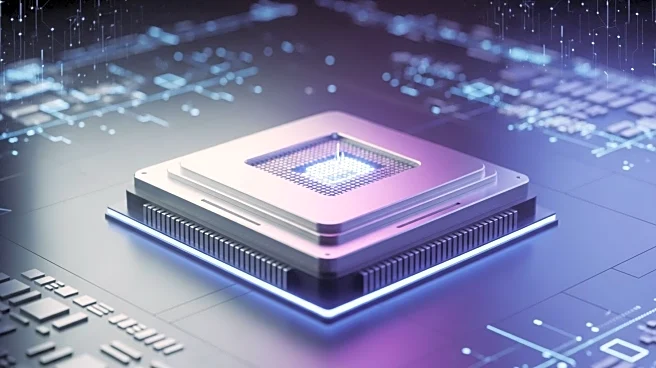What's Happening?
Qualcomm has announced its latest processors, the Snapdragon X2 Elite and Snapdragon X2 Elite Extreme, at the Snapdragon Summit in Hawaii. These new chips are designed to enhance performance in Windows-based machines, particularly focusing on graphics capabilities. The X2 Elite Extreme features 18 Oryon CPU cores on a 3nm process, promising improved responsiveness and power efficiency. Qualcomm has also upgraded its Adreno GPU, claiming a 2.3x better performance per watt, which should support advanced graphics features like ray tracing. However, compatibility issues remain a challenge, as ARM-based CPUs differ from the x86 architecture used by Intel and AMD, affecting app compatibility.
Why It's Important?
The introduction of the Snapdragon X2 Elite series marks a significant step for Qualcomm in the PC market, traditionally dominated by Intel and AMD. By focusing on ARM-based processors, Qualcomm aims to offer more power-efficient solutions, potentially reshaping the landscape of PC hardware. This move could benefit consumers seeking high-performance, energy-efficient devices, but developers may face challenges in adapting software to ARM architecture. The success of these processors could influence the future direction of PC design and software development, impacting industry standards and consumer choices.
What's Next?
Qualcomm plans to release Snapdragon X2 Elite Extreme-powered PCs early in 2026, with expectations for these devices to be showcased at CES 2026. As Qualcomm continues to push for ARM compatibility, collaborations with software developers and companies like Microsoft will be crucial. The company is working on improving app compatibility, including gaming titles, through initiatives like Microsoft's Prism emulator and potential ARM compatibility layers from Valve. The broader adoption of ARM-based PCs will depend on overcoming these compatibility hurdles and demonstrating tangible benefits to consumers.
Beyond the Headlines
The shift towards ARM-based processors in PCs could have long-term implications for the tech industry, potentially leading to more sustainable computing solutions due to their power efficiency. This transition may also drive innovation in software development, as companies adapt to new architectures. Additionally, Qualcomm's focus on AI capabilities within its processors highlights the growing importance of AI in computing, which could lead to new applications and functionalities in everyday devices.










